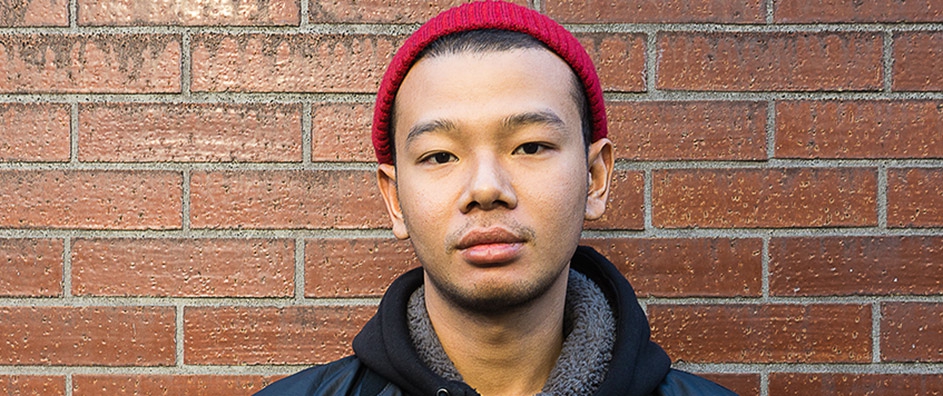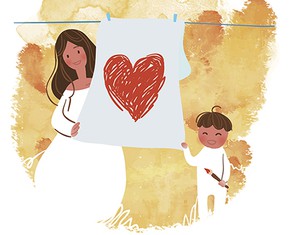The views expressed in our content reflect individual perspectives and do not represent the authoritative views of the Baha'i Faith.
When a baby comes into this world, he “dies” with respect to the warm, comfortable mother’s womb where he happily lived for nine months.
He leaves that life forever as he enters this life, having no idea this life even exists. Hence this life is the afterlife of the mother’s womb, and the womb for the next life.
Death is birth: we can’t have one without the other.
The purpose of the baby’s life in the mother’s womb is to prepare for this life. He grows the necessary limbs and organs required to allow him to function in this life.
Similarly, the purpose of our life on Earth is to prepare for the next life. We are here to develop our souls, to become spiritual human beings. In so doing, we will be able to function much more easily and happily in the next life.
The Baha’i teachings have a very positive view of life after death. For example, here’s a beautiful quotation from Abdu’l-Baha, Baha’u’llah’s eldest son and appointed successor:
A friend asked: ’How should one look forward to death?’
Abdu’l-Baha answered: ’How does one look forward to the goal of any journey? With hope and with expectation. It is even so with the end of this earthly journey. In the next world, man will find himself freed from many of the disabilities under which he now suffers. Those who have passed on through death, have a sphere of their own. It is not removed from ours; the work of the Kingdom, is ours; but it is sanctified from we call “time and place.” Time with us is measured by the sun. When there is no more sunrise, and no more sunset, that kind of time does not exist for man. Those who have ascended have different attributes from those who are still on earth, yet there is no real separation….’ – Abdu’l-Baha in London, p. 96.
That said, this does not deny the excruciating pain we all feel when a loved one dies. It can be extremely difficult to cope with such a loss.
True, the Baha’i beliefs about life after death definitely help in a big way. Nevertheless, we must face and deal with our loss as best we can. How do we do this?
Each person has his or her own way of coping. Here’s my way: First and foremost, I give myself permission to grieve and weep. It’s perfectly healthy and okay to do this. I acknowledge my extreme pain: it is real and very deep.
Then I read, reread and cry intensely through a truly exceptional book called How to Survive the Loss of a Love, by Peter McWilliams. Half of this book is beautiful moving poetry; the other half is warm practical advice. It’s deliberately written in a way that is very easy to read. I cannot recommend this book highly enough, because it has helped me immeasurably in coping with many deaths in my life. The theme of the book is “You are alive. You will survive.”
Here’s a paraphrased example from this book: do not put yourself down by saying “If only I had said this.” “If only I had done that.” The “if only’s” don’t matter now. You did the best you knew how to do at the time. If you had known better, you would have done better.
When I read the Baha’i writings about death, the word of God comforts me and gets me through such painful times in my life. Also, Peter McWilliam’s book has become my second Bible when it comes to mortality, because it is so very helpful; it’s like a loving companion.
If my grief and my reading aren’t enough, I seek professional help by going for temporary counseling to get me through my loss. I strongly believe in counselors because they have helped so much in the past.
The Baha’i teachings are very helpful and positive about death. Baha’u’llah said we should see death as a messenger of joy. But if we’re not that spiritually strong or prepared, we may need the help of others to get through such painful times in our lives. We should not be in denial. Nor should we deny ourselves other ways of coping if we feel they’re necessary, which they often are. We should not feel guilty when we do seek other ways to get through our grief.
And when all is said and done, the most we survivors of the deaths of our loved ones can do is grow! Let us make a commitment to do whatever is necessary to grow as much as we can!
You May Also Like
Comments

















What thing could remain hidden under such a Light?
Although all lights emanate from the Divine Light
Don't call all these lights "the Light of God";
It is the eternal light which is the Light of God,
The ephemeral light is an attribute of the body and the flesh.
...Oh God who gives the grace of vision!
The bird of vision is flying towards You with the wings of desire.
(Rumi, Mystic Odes 833)